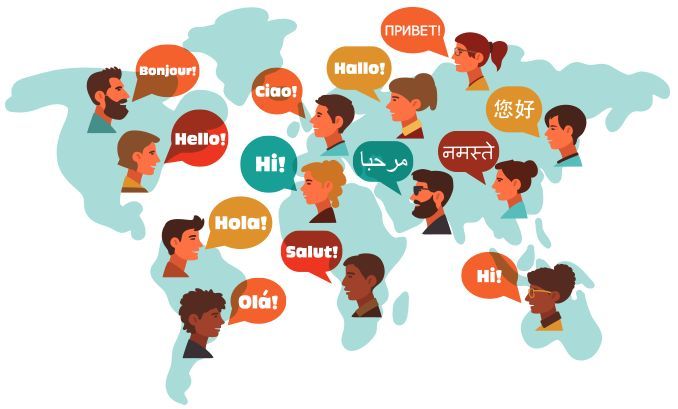
Arabic Language Course opens a gateway to one of the world’s richest languages—spoken by over 300 million people across more than 20 countries. It’s not only the language of the Quran and Islamic scholarship but also a key to understanding the culture, history, and identity of the Arab world. Whether your goal is to deepen your religious knowledge, travel, build a career, or connect with Arabic-speaking communities, enrolling in an Arabic language course brings countless personal, academic, and professional rewards.
Today, learning Arabic online has become more accessible and flexible than ever. Moreover, with expert native instructors, structured online programs, and interactive tools, anyone can progress from beginner to fluent speaker at their own pace. Whether you want to understand the Quran or converse confidently in everyday Arabic, your journey begins with choosing the right course and learning method that fits your goals. In addition, online learning allows you to balance study with work or personal commitments, making it easier to stay consistent and motivated.
Why You Should Join Arabic Language Course

1. Arabic – The Language of the Quran and Islamic Knowledge
Learning Arabic allows Muslims to connect directly with the Quran in its original language. Understanding Quranic Arabic helps deepen comprehension of the Quranic messages, Islamic teachings, and the life of the Prophet ﷺ. It also enables a more accurate understanding of Hadith, classical Islamic texts, and religious practices. By studying Arabic, students not only strengthen their faith and spiritual connection but also gain the tools to explore the rich heritage of Islamic scholarship more meaningfully.
2. Career and Cultural Advantages
Arabic is in high demand in the U.S. and internationally, particularly in government, business, diplomacy, translation, and nonprofit work. Learning Arabic can help you build valuable professional relationships, access Arab literature and media, and gain cultural knowledge that sets you apart from your peers. With Arabic proficiency, you can also act as a bridge between cultures, promoting better understanding and awareness between Arabs and non-Arabs.
3. Mental and Personal Growth
Learning Arabic challenges your brain with its unique script, pronunciation, and grammar, boosting memory, confidence, and communication skills. Immersing yourself in Arabic-speaking countries offers exciting travel opportunities, exposure to diverse cultures, and a chance to experience hospitality and traditions firsthand.
4. Travel, Immersion, and Dialect Choices
Learning Arabic opens doors to travel across 20 countries in the Middle East where it is the national language. Enrolling in an Arabic Language Course gives you unique international experiences, from studying abroad in Egypt, Morocco, Jordan, or Lebanon to exploring business and cultural opportunities. You can also choose a dialect that interests you, making your language learning experience more engaging and practical. Immersing yourself in Arab culture allows you to gain a deeper understanding of daily life, hospitality, and traditions, giving you perspectives that go beyond the classroom.
Types of Arabic Language Courses
1. Classical Arabic (Fusha)

Classical Arabic, also known as Quranic Arabic, is based on the language of the Quran, the oldest Arabic text. It is characterized by a unique writing style, vocabulary, grammar, and rhetorical features. This form of Arabic is ideal for students of Islamic studies or anyone wanting to deepen their understanding of worship and Islamic research. Learning Classical Arabic through an Arabic Language Course gives you access to the Quranic text in its original form and connects you to centuries of Arabic literary and religious tradition.
2. Modern Standard Arabic (MSA)

Modern Standard Arabic is widely used across the Arab world in media, education, books, newspapers, and official communication. Moreover, it is understood by all Arabic speakers, regardless of their local dialect. In addition, MSA focuses on daily-life vocabulary rather than classical Quranic language, which means it is essential for learners aiming for fluency and professional communication. Therefore, mastering MSA allows you to connect with Arabic speakers everywhere and access a wide range of cultural and educational resources.
3. Colloquial Arabic (Dialects)

Colloquial Arabic refers to the informal language used in daily conversations and varies by region. Dialects such as Egyptian, Levantine, Gulf, and Maghrebi have unique pronunciations and expressions, with some being widely understood and others more distinct. Egyptian Arabic, in particular, is widely used in media and entertainment, making it highly practical for travel, conversation, and business. Our Egyptian Arabic Language Course is designed to help you communicate effectively in daily life, understand Arabic media, and engage with native speakers confidently.
How to Choose the Right Arabic Language Course
1. Identify Your Learning Goal for an Arabic Language Course
Before choosing an Arabic course, start by defining your goals. Do you want to learn Arabic to understand the Quran, communicate in daily life, or pursue academic or professional opportunities?
- If your main goal is religious understanding, you may want to start with Quranic Arabic or Modern Standard Arabic (MSA), which provides a solid foundation for reading and understanding classical texts.
- If your goal is conversation and travel, a colloquial dialect such as Egyptian or Levantine Arabic is ideal, as it helps you communicate naturally with native speakers.
- For business or specialized purposes, look for tailored courses such as Business Arabic or those that combine Arabic learning with cultural activities.
2. Look for Certified Native Instructors
Native-speaking instructors bring authentic pronunciation, natural expressions, and a deep understanding of cultural nuances that make learning Arabic easier and more enjoyable. Certified teachers also follow structured methods that help students master grammar, sentence construction, and conversation gradually. Whether you’re learning Modern Standard Arabic or a specific dialect like Egyptian Arabic, studying with a native instructor ensures you sound more fluent and confident from the start.
3. Check Curriculum and Learning Levels
A good Arabic Language Course should be well-structured, progressing from the alphabet and pronunciation to conversation, reading, and grammar. Moreover, before enrolling, you can take a free trial session at Areeb Academy, where the teacher will assess your learning goals and determine your current level. This way, you’ll start at the right level and focus on what’s most important for your progress. Reading the learning outcomes of each level then ensures you’re in a class that matches your abilities and helps you achieve measurable improvement.
4. Online vs. Offline Arabic Language Courses
Decide whether you prefer online learning or in-person classes. While offline courses allow more face-to-face interaction and cultural immersion, especially if you’re studying abroad, for most learners today, online Arabic courses—particularly those focusing on Egyptian Arabic—are the most convenient and effective option. This is because they combine expert instruction with flexibility and personalized guidance. Additionally, online courses offer comfort and the ability to learn from anywhere. Furthermore, you can choose one-on-one sessions with native teachers and follow a personalized pace, ensuring that your learning experience meets your individual needs.
Step-by-Step Path to Master Arabic
1. Start with the Arabic Alphabet in Your Arabic Language Course

One of the first steps in learning Arabic is mastering its script. Arabic is written from right to left and has 28 letters, each of which can change shape depending on its position in a word.
Tips for Learning the Arabic Alphabet:
- Use Visual Aids: Flashcards and alphabet charts help memorize letters and their sounds.
- Practice Writing: Regular handwriting practice improves letter recognition and builds muscle memory.
- Learn Letter Forms: Understand initial, medial, final, and isolated forms of each letter.
2. Learn Basic Vocabulary and Grammar

After learning the alphabet, focus on essential vocabulary and grammar to start forming sentences.
Essential Vocabulary Categories:
- Greetings and common expressions
- Numbers and time-related words
- Food and daily activities
- Family and relationships
- Common verbs and adjectives
Fundamental Grammar Concepts:
- Gender and Number: Nouns have masculine and feminine forms, as well as singular, dual, and plural.
- Verb Conjugations: Learn patterns for present, past, and future tenses.
- Sentence Structure: Typically verb-subject-object, but can vary.
- Definite Article “Al-”: Used to specify nouns.
Building a solid foundation in vocabulary and grammar helps you communicate effectively and prepares you for more advanced skills.
3. Practice Speaking and Listening

Active practice in speaking and listening is crucial to mastering Arabic quickly.
Strategies to Improve Speaking and Listening:
- Shadowing Technique: Repeat after native speakers to improve pronunciation and intonation.
- Listen to Arabic Media: Watch movies, listen to podcasts, or follow news channels to familiarize yourself with dialects and accents.
- Language Exchange: Partner with native learners of your language to practice reciprocally.
- Record Yourself: Listening to your recordings helps identify areas for improvement.
4. Read the Quran or Arabic Stories in Your Arabic Language Course

Reading and writing reinforce your knowledge of vocabulary and grammar. Start with simple texts and gradually progress to more complex materials.
Tips for Reading and Writing:
- Reading: Begin with children’s books or simple stories, use bilingual books for comparison, and read Arabic newspapers or online articles.
- Writing: Keep a daily journal, write short essays or dialogues, and practice emails or letters with native speakers.
Understanding Dialects and MSA:
- Modern Standard Arabic (MSA): Best for formal reading, writing, and media.
- Dialect Selection: Choose based on goals—Egyptian Arabic for media and conversation, Gulf Arabic for Arabian Peninsula, Levantine Arabic for Syria, Lebanon, Jordan, Palestine.
- Mix Learning: Start with MSA and gradually add dialects as you progress.
5. Stay Consistent and Track Your Progress

Consistency is key. Set realistic goals, maintain a study schedule, and track improvements while progressing through your Arabic Language Course.
Tips for Motivation:
- Join online Arabic learning communities for support and cultural exchange.
- Regularly review previous lessons to reinforce your knowledge.
- Celebrate small milestones like mastering the alphabet or completing your first conversation.
Benefits of Online Arabic Language Courses
1. Flexible Pacing
Online Arabic Language Courses let students learn at their own pace. Whether you choose Modern Standard Arabic (MSA) or Egyptian Colloquial Arabic, you can purchase hour-based packages that fit your schedule. Course advisors recommend the best program based on your goals and proficiency level. With 24/7 access to lessons and support from expert native teachers at Areeb Academy, students can progress steadily, schedule lessons flexibly, and earn certificates upon completion.
2. Diverse Learning Opportunities
Learning Arabic online provides access to a variety of course options. For instance, Egyptian Colloquial Arabic focuses on practical speaking skills for everyday situations, such as ordering food, asking for directions, or discussing routines. Meanwhile, MSA offers a solid foundation for formal writing and communication across all Arab countries. Additionally, students can choose Quranic Arabic classes to focus on Tajweed, Hifz, and recitation. Therefore, this variety allows learners to select courses that best align with their personal or professional needs, ensuring a tailored and effective learning experience.
3. Cultural Understanding
Online Arabic courses immerse students in Arab culture. Learners are encouraged to watch Arabic TV shows, movies, listen to podcasts, or music. This helps them understand social customs, greetings, family structures, values, and religious practices. Through cultural exposure, students not only learn the language but also gain a deeper appreciation of Arab traditions and lifestyle.
4. Business and Professional Advantages
Practicing Arabic online enhances business communication skills. Students can participate in professional conversations, negotiate deals, and understand the expectations and terms of agreements. Knowing Arabic strengthens rapport with Middle Eastern clients and colleagues, which is essential for international business, diplomacy, and cross-cultural collaboration.
5. Academic and Career Opportunities
Proficiency in Arabic opens doors to diverse academic and professional fields. Students may pursue careers in research, translation, anthropology, history, comparative literature, Middle Eastern studies, religious studies, or sociology. Learning through an Arabic Language Course online equips learners with skills to interpret primary source materials, access specialized studies, and gain competitive advantages in various industries.
Additional Advantages
- Female learners and children have access to female instructors, ensuring a comfortable learning environment.
- Study from anywhere, anytime with online flexibility.
- Receive personalized feedback and adjust learning schedules to fit your lifestyle.
Common Mistakes to Avoid
1. Memorizing Without Understanding
One of the biggest mistakes Arabic learners make is memorizing vocabulary lists or grammar rules without understanding how to use them in real-life situations. As a result, learning words out of context makes it harder to recall or apply them correctly in sentences. Therefore, instead of relying solely on memorization, try to learn through examples, short dialogues, or stories, so that you can understand the meaning and usage naturally. By doing this, you will retain vocabulary more effectively and use it confidently in conversation.
2. Ignoring Listening and Speaking Practice
Many learners focus too much on reading and writing while neglecting speaking and listening. Arabic is a living language that’s best learned through sound and conversation. To improve fluency and pronunciation, participating in an Arabic Language Course with native instructors, listening to Arabic podcasts, songs, or short videos, and practicing speaking regularly will build your confidence and fluency. Don’t worry about mistakes—each conversation helps you improve.
3. Relying Only on Apps Without Teacher Guidance
Language apps are helpful for vocabulary and grammar drills, but they can’t replace interaction with a qualified teacher. Without feedback, it’s easy to develop pronunciation errors or misunderstand cultural nuances. Working with a teacher—especially in live online classes—helps correct mistakes early and gives you structured, personalized feedback. Areeb Academy combine self-paced learning with real conversation, ensuring balanced progress.
Final Thoughts

Arabic is more than a language—it’s a bridge to faith, culture, and connection. Therefore, by enrolling in an Arabic Language Course, you’re not just gaining a new skill but also unlocking a deeper understanding of Islamic heritage, Arab culture, and global communication. Whether you begin with Quranic Arabic, Modern Standard Arabic, or a spoken dialect like Egyptian Arabic, each step you take will bring you closer to new opportunities and perspectives.
Moreover, with the right guidance, consistent practice, and a supportive online learning environment, fluency is entirely within reach. So, start your Arabic learning journey today—immerse yourself, stay consistent, and enjoy discovering the beauty and depth of the Arabic language.
Ready to begin your Arabic journey? 🌟
At Areeb Academy, you’ll learn Arabic directly from native Arab teachers who make every lesson engaging and authentic. Our one-to-one online sessions are fully personalized—designed to match your goals, pace, and learning style.
Whether you’re a beginner, advanced learner, or parent looking for Arabic lessons for your child, Areeb Academy offers the flexibility you need. Choose your schedule, connect from anywhere, and enjoy a supportive environment where both kids and adults can build confidence in speaking, reading, and understanding Arabic.
Join Areeb Academy today and start learning Arabic the right way—with expert teachers, flexible timing, and lessons tailored just for you.
Frequently Asked Questions (FAQs)
1. Which type of Arabic should I start learning?
If you’re a beginner, it’s best to start with Modern Standard Arabic (MSA) because it’s understood across all Arab countries and forms the foundation for learning Quranic Arabic and dialects later. If your goal is everyday conversation, Egyptian Arabic is a great choice since it’s the most widely understood dialect in the Arab world.
2. How long does it take to learn Arabic fluently?
It depends on your goals, consistency, and study time. With regular one-to-one lessons and daily practice, learners often start forming basic sentences within a few months. Reaching fluency can take 6–12 months with consistent effort and immersion through listening and speaking practice.
3. Are Areeb Academy’s teachers native Arabic speakers?
Yes! All instructors at Areeb Academy are native Arab teachers experienced in teaching both kids and adults. They focus on correct pronunciation, real-life communication, and cultural understanding—making learning Arabic natural and effective.
4. Are classes suitable for beginners and children?
Absolutely. Areeb Academy offers structured programs for all levels and ages, including children’s courses with patient, engaging instructors. Lessons are personalized and adapted to the student’s pace, ensuring a fun and motivating experience.
5. Can I choose my class time and pace?
Yes, our online one-to-one sessions are completely flexible. You can schedule your lessons anytime—mornings, evenings, or weekends—making it easy to balance learning with school, work, or family life.
What do I need to start learning Arabic online?
All you need is a computer or tablet, a stable internet connection, and the willingness to enroll in an Arabic Language Course! Once you join, your assigned teacher will guide you step-by-step with interactive materials, speaking practice, and personalized feedback.


